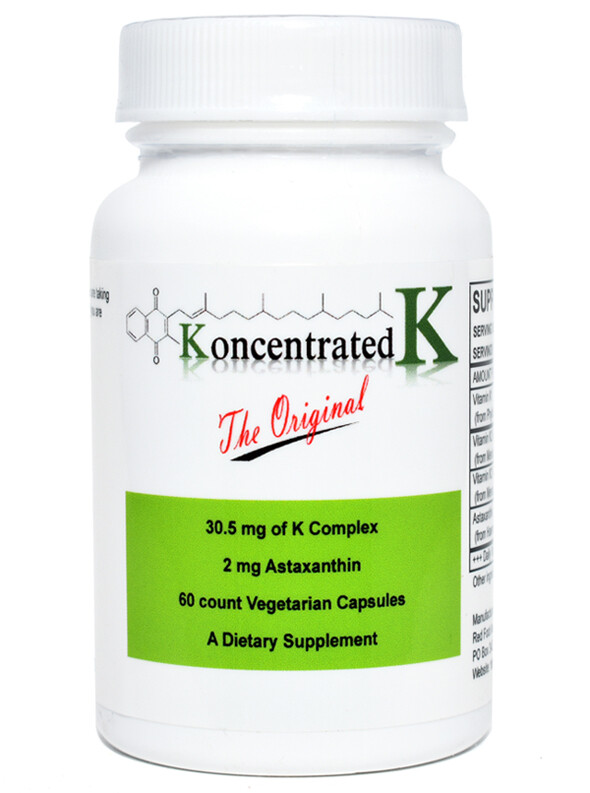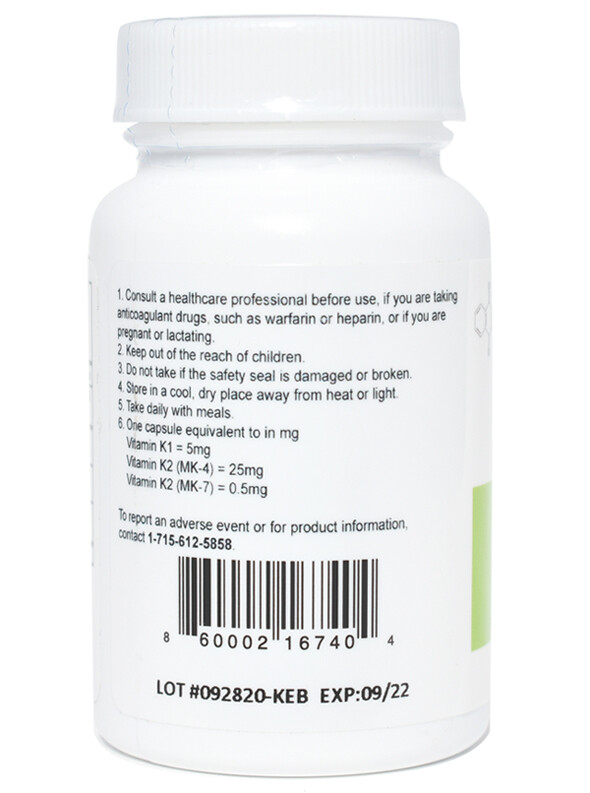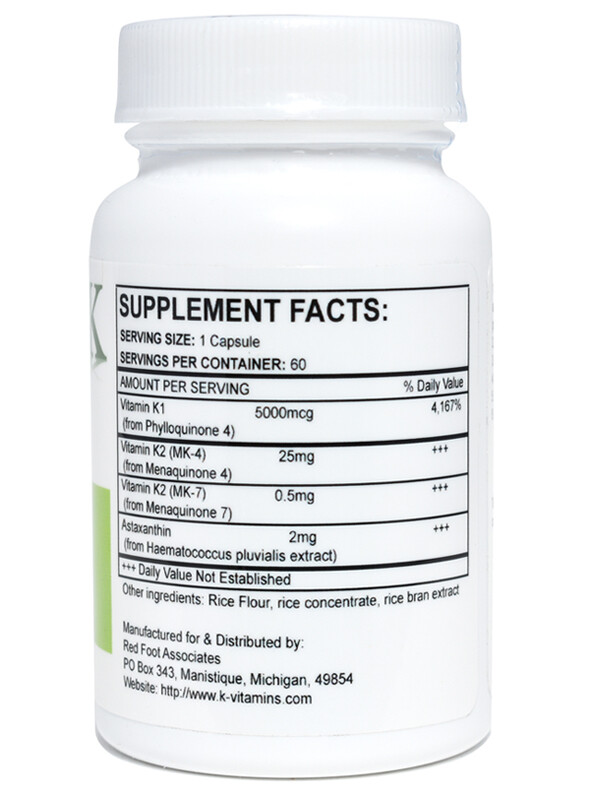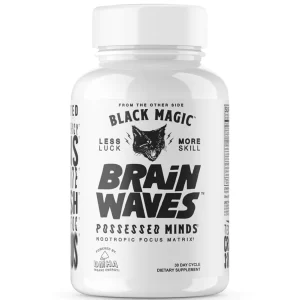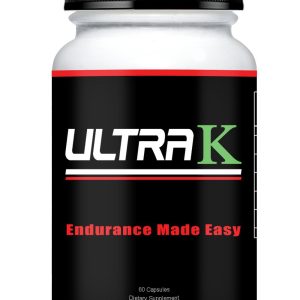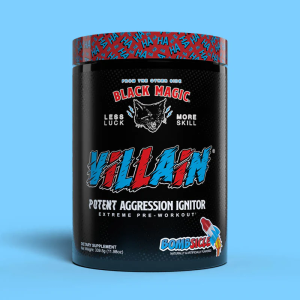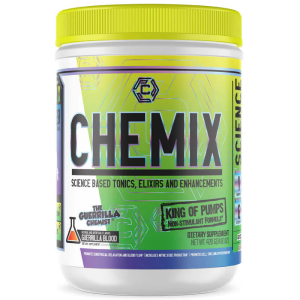Koncentrated K
$45.00
Weight: 2.25 oz
Count: 60 Capsules
- Serving: 1 capsule
- Servings per container: 60 Capsules
Koncentrated K features a high, therapeutic dose of Vitamin K1, MK4, and MK7 as well as Astaxanthin, a powerful antioxidant. Koncentrated K is the only brand that offers this blend of ingredients at this dosage level. Koncentrated K is significantly lower priced than other brands.
21 in stock
Description
Koncentrated K, a multi-vitamin containing Vitamin K1, MK4, MK7, and Astaxanthin, a powerful antioxidant.
* Vitamin K is known for clotting your blood, but research indicates that it is vital to the health functioning of many tissues in your body.
* Research shows that a prolonged vitamin K deficiency is a risk factor for osteoporosis, atherosclerosis, Alzheimer’s and cancer. Present recommendations for daily intake are based on what your body needs to prevent bleeding. The current recommendations for daily intake do not take into account what the rest of your body needs.
* Research indicates that the vitamin K intake of the general population is too low, and that most people test as being deficient in vitamin K.
* Vitamin K is not toxic at any level. Some folks have taken doses as high as 45 mg a day, with no adverse effects. It appears that your body uses all that it gets. There are no recommended daily allowances, as there are no upper limits, meaning you can take high doses without worry.
* Vitamin K is associated with many health benefits. Research has greatly expanded in the last decade, and vitamin K is associated with reversing cardiovascular disease, with strengthening bones, with interfering with the growth of cancer cells, with benefitting those with chronic kidney disease, as helping regulating insulin in diabetics, improving cognitive functioning and much more. Vitamin K is naturally occurring, and can be a non-toxic intervention to treat these diseases.
* Phylloquinone and menaquinones differ in source, absorption rates, tissue distribution, bioavailability, and target activity. Early research suggested that certain menaquinones may be the predominant form of vitamin K found in extra-hepatic tissues and may be affected by diet, gender, and age (Huber et al, 1999). There is ongoing research to highlight and summarizes differences between vitamin K1 and K2 in intake and function, beyond coagulation (Wen et al, 2018; Halder et al, 2019; Simes et al, 2020). This new information will contribute to foster the use of vitamin K as a health-promoting supplement, which may prevent a wide range of disabling diseases (Wei et al, 2019), and which could meet the increasing consumer demand.
